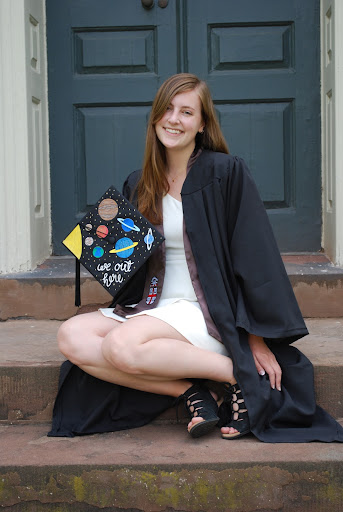This Q&A highlight features Sarah Bawabe, an Honorable Mention in the 2021 CRA Outstanding Undergraduate Researchers award program. Sarah graduated from Brown University in 2021 with degrees in Astrophysics and Computer Science and is now a software engineer with Verb Energy. This interview has been edited for length and clarity.
What originally influenced you to consider doing research as an undergraduate?
I’ve always been curious about the world around me, never letting a question go unanswered. So when I arrived at college and was surrounded by academics, the questions became endless. I got my first taste of research my freshman summer, when I worked alongside one of my physics professors, Dr. Jim Gates, as a part of his introductory theoretical physics summer program.
How did you find the research opportunity that led to your CRA recognition?
Early in my junior year, a friend told me over coffee about an interesting class she was headed to later in the day, leading me to Dr. Jeff Huang’s User Interfaces and User Experience (UI/UX) course. Not only did I join the course, but I also applied to be a Head Teaching Assistant for UI/UX for the following fall. Dr. Huang then invited me to work as a research assistant in the summer to spearhead the creation of a peer-review application to be used for UI/UX grading.

Tell us about the project.
Design work in UI/UX courses is difficult to grade because of the inherent subjectiveness. Dr. Huang had the idea of creating a peer-review application to reduce grader bias. Peer review is widely used to help gather feedback, inspire and encourage creativity, and lessen instructor grading loads—so could we harness the power of peer review to create quantitative feedback for students? We didn’t have a clear vision for the app when we first began, but through many collaborations (special thanks to Ezra Marks, Laura Wilson, and Tongyu Zhou!) and iterations, the UX Factor finally began to take shape. The UX Factor is an app that leverages pairwise comparisons and ranking algorithms to aggregate peer feedback into a grading report.
What technical challenges did you face in research? What did you learn from them?
One of the biggest challenges we faced in the research process was in scaling our design testing. We started with several iterations of design testing with members of our research group, but we quickly learned that testing with 120 students in a UI/UX course involves a lot more feedback and bug fixes. However, this rapid troubleshooting and debugging mindset made me a better coder and better thinker, and in many ways prepared me for my current job as a software engineer.
How did you and your team share your project with other researchers?
We published The UX Factor: Using Comparative Peer Review to Evaluate Designs through User Preferences at the Conference On Computer-Supported Cooperative Work And Social Computing (CSCW) 2021, winning both an Honorable Mention and an Impact Recognition award. Our UX Factor app was also used in Adobe’s 2021 Creative Jam challenge to encourage peer feedback and mutual inspiration among contestants.
An annotated overview of the UX Factor web app
What personal challenges did you face in research? What did you learn from them?
When first starting research, you realize how little you know about a topic and have to acknowledge that that’s okay. Working alongside experienced professors and PhD students, I was really intimidated at first, feeling like I didn’t know anything. But a professor once told me that sometimes the best questions come from those who are learning something completely new and haven’t become set in their ways yet—that really stuck with me.
Also, as a woman who majored in two very male-dominated fields, I often felt unheard or ignored by my peers. I am thankful for all the support from my family, friends, and mentors who helped me keep moving forward and achieving my goals.
How has participating in research shaped your professional path?
Research made me a better learner, coder, and communicator. My research experiences directly inspired my choice of becoming a software engineer at a smaller company (shoutout Verb Energy!) where I can work on larger projects with greater impact.
Do you have any advice for other undergraduate students looking to get into research?
Two things:
- Don’t be afraid to just send that email! I landed my first research position by simply emailing one of my professors whose work I found fascinating.
- Don’t be afraid to ask questions! One day, a photo on a slide in my deep learning class reminded me of something I had seen recently in my physics research group. I later asked my advisor whether anyone had ever related the two, and that question paved the path for my whole senior thesis project.
— Edited by Nadia Ady and Ian Ludden
